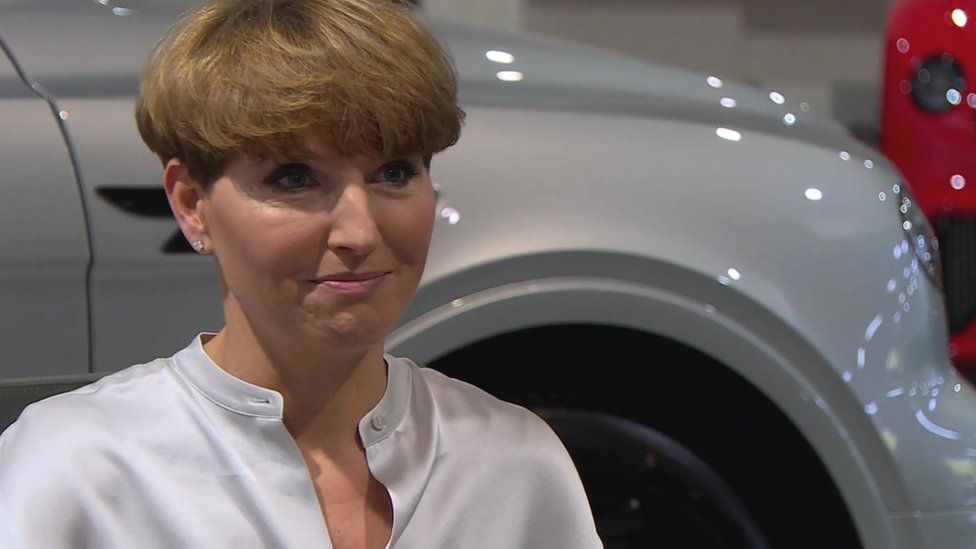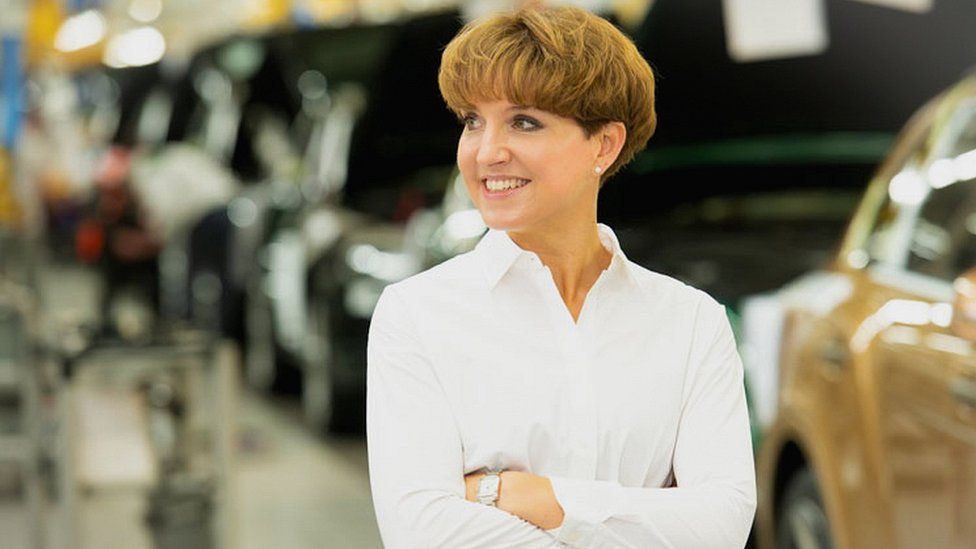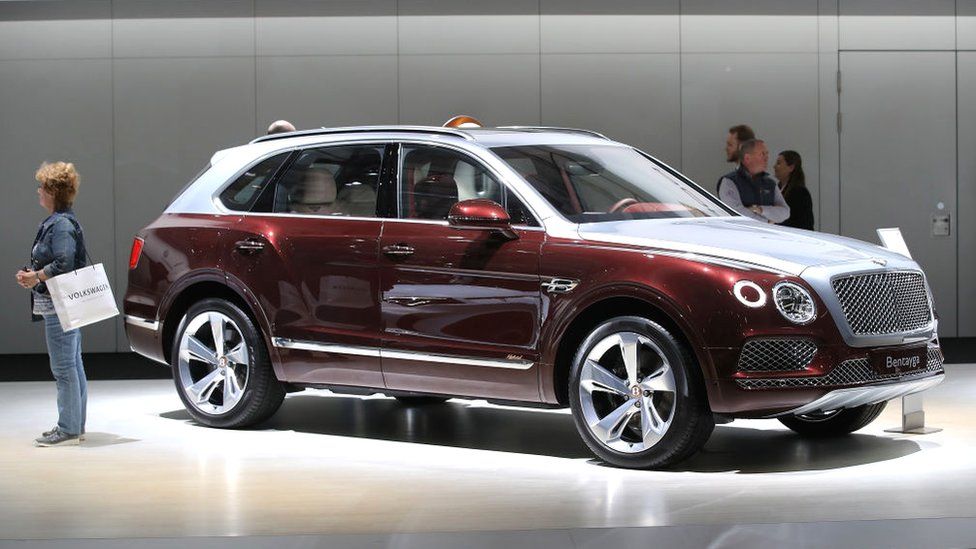 |
Astrid Fontaine thinks the changes forced on firms by Covid-19 could reap significant benefits
"When I went to university, we were three girls out of 120 students studying mechanical engineering," says Dr Astrid Fontaine.
"Who do you have in a company that's engineering driven? It's people who have studied science, technology, maths, engineering - and these were subjects in the past that mainly boys tended to study."
Dr Fontaine is a board member at Bentley, the Volkswagen-owned British luxury carmaker. She is trying to explain to me why senior female executives like her are still a relative rarity in the car industry, even though women make up an increasingly large proportion of the market - and in the UK alone own some 35% of the cars on the road.
She is also setting out why she thinks the crisis in the industry sparked by the Covid-19 pandemic may prove to be a catalyst for the creation of a more diverse workforce.
Covid impact
During her 25-year career, Dr Fontaine has spent time at Daimler and Porsche, as well as in academia in China and the United States. The executive appointments firm Inclusive Boards ranks her as one of the 100 most influential women in the engineering sector.
 IMAGE SOURCE, GETTY IMAGES
IMAGE SOURCE, GETTY IMAGES
Image caption,
Covid has seen Bentley bring forward plans to lay off roughly a quarter of its workforce
Now at Bentley, as board member in charge of "People, Digitalisation and IT", she finds herself overseeing attempts to build a more inclusive workforce. Last year, there were signs of progress: the company took on 93 trainees, of whom 31 were female - a record for the business. But that was before the pandemic took hold.
Like other carmakers, Bentley was badly affected by the lockdown, which forced it to shut its factory in Crewe for seven weeks, and send staff home. It later brought forward plans to lay off 1,000 employees, or roughly a quarter of its workforce.
Yet Dr Fontaine insists that the cuts - involving large numbers of voluntary redundancies - will not actually hamper long-term efforts to improve diversity. Indeed, she thinks the changes in working patterns forced on companies by the crisis could reap significant benefits.
"I think what we're seeing here is a change in generations. I think it's rather an opportunity now to look forward," she says.
"This opportunity to work remotely, collaborating on digital platforms - it removes any kind of barriers regarding where you are located; it removes the barriers created when, for example, you have to look after children or your family.
 IMAGE SOURCE, BENTLEY MOTORS
IMAGE SOURCE, BENTLEY MOTORS
Image caption,
Car firms need to create awareness about unconscious bias in order to counter it, says Dr Fontaine
"You can be working from home, while doing that as well - so your multi-tasking opportunities and flexibility increase tenfold. And I think that's why the environment will be so much more diverse!
"The talent that women bring… in the past maybe they were not willing to bring it forward because they had too many other things to care for."
All this comes at a time when, according to Dr Fontaine, the industry as a whole is already changing in ways that will appeal to a broader workforce.
"In the past it was driven very much by mechanical engineering and design," she explains.
"But now the industry is fully into the topic of electrification and digitalisation.
"So, you need system developers, skills in social media… and in this world of new skills we are looking for, we find a much broader pool of female candidates."
 IMAGE SOURCE, GETTY IMAGES
IMAGE SOURCE, GETTY IMAGES
Image caption,
The car industry now needs a wider skills set, which includes a much broader pool of female candidates, says Dr Fontaine
Bias awareness
Given the challenges faced by other senior women in male-dominated industries, it's perhaps surprising that when asked about her own career, Dr Fontaine has few complaints about obstacles being put in her way.
"Maybe I was simply lucky," she says.
"I found the opposite - there were people that were helping me, that were mentoring, that were giving advice, that were giving honest feedback. I found people were supportive."
But she agrees that there is a mindset within the industry that needs to change.


No comments:
Post a Comment